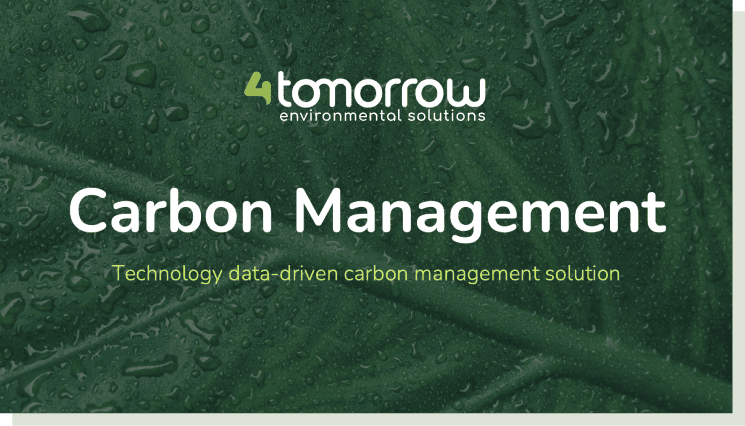Understanding Scope 1, 2 & 3 Emissions
The Foundation for Business Success
In today’s business landscape, environmental sustainability is no longer optional—it’s essential. For companies committed to reducing their carbon footprint, understanding and managing greenhouse gas (GHG) emissions across Scope 1, 2, and 3 is crucial. By mastering these emissions scopes, businesses can stay ahead of regulations, build trust with stakeholders, and gain a competitive edge in the market.
At 4tomorrow, we believe that transforming environmental responsibility into measurable business value starts with clear, actionable insights into your emissions profile.
What are Scope 1, 2 & 3 Emissions?
Picture your company’s carbon footprint like ripples in a pond—starting at the centre and radiating outward. Each ripple represents a different scope of emissions, each with its own complexities and significance.
Scope 1: Your Direct Footprint
Scope 1 emissions are those directly under your control. They include emissions from your company’s vehicles, manufacturing processes, and on-site energy use, such as the gas heating your facilities. These emissions are the most visible, making them the starting point for many businesses’ reduction efforts.
Scope 2: Your Energy Footprint
Scope 2 covers indirect emissions from the energy you purchase and consume, such as electricity powering your operations. While these emissions occur off-site, they’re still a direct result of your energy use.
Scope 3: Your Extended Footprint
The most complex and impactful, Scope 3 encompasses all other indirect emissions in your value chain. This includes emissions from suppliers, transportation, employee commuting, waste disposal, and even product usage. For many businesses, Scope 3 accounts for 70-80% of their total carbon footprint.


Turning Insight into Action
Understanding the three scopes is just the first step. To drive meaningful change, businesses must focus on measurement, strategy, and collaboration across the value chain.
Measure Your Impact
While Scope 1 and 2 emissions are easier to track, Scope 3 requires innovative tools and data-sharing with suppliers and partners. At 4tomorrow, our platform simplifies this process, making it accessible for SMEs.
Optimise for Efficiency
Tackling emissions across all scopes often uncovers inefficiencies. From optimised logistics to improved energy sourcing, businesses can save 10-15% on operational costs while reducing their environmental impact.
Leverage Reporting for Growth
Transparent emissions reporting is no longer a regulatory box to tick—it’s a strategic tool. With 73% of procurement teams prioritising sustainable suppliers, businesses that invest in comprehensive reporting open doors to new markets and strengthen customer relationships.
Access to Financial Incentives
Governments and institutions are introducing financial incentives for businesses adopting sustainable practices, including tax breaks and grants for renewable energy investments. Early adopters benefit not only from these incentives but also from enhanced business performance and attractiveness to investors.
Innovate for the Future
Sustainability drives innovation. Whether it’s rethinking product design, streamlining processes, or collaborating with supply chain partners, businesses can unlock new opportunities while reducing emissions.
How 4tomorrow Supports Your Journey to Net Zero
At 4tomorrow, we turn the challenges of emissions management into opportunities for growth. Our platform offers:
- Data-Driven Insights
Simplify the complexity of Scope 3 emissions with intuitive tools that highlight inefficiencies and areas for improvement. - Actionable Strategies
Develop targeted reduction plans tailored to your operations and value chain. - Comprehensive Reporting
Our reports align with global standards, helping businesses demonstrate ESG compliance, attract investors, and secure green financing. - Collaborative Solutions
Engage suppliers and partners to achieve shared decarbonisation goals and ensure long-term impact.
The Business Case for Sustainability
Reducing emissions isn’t just about environmental impact; it’s about future-proofing your business. From operational savings and risk mitigation to enhanced brand reputation and market differentiation, the benefits are clear. At 4tomorrow, we empower businesses to see sustainability not as a cost but as an investment in resilience, innovation, and growth.
Are you ready to unlock the potential of your emissions profile?
Contact 4tomorrow today and take your first step toward a sustainable future.
